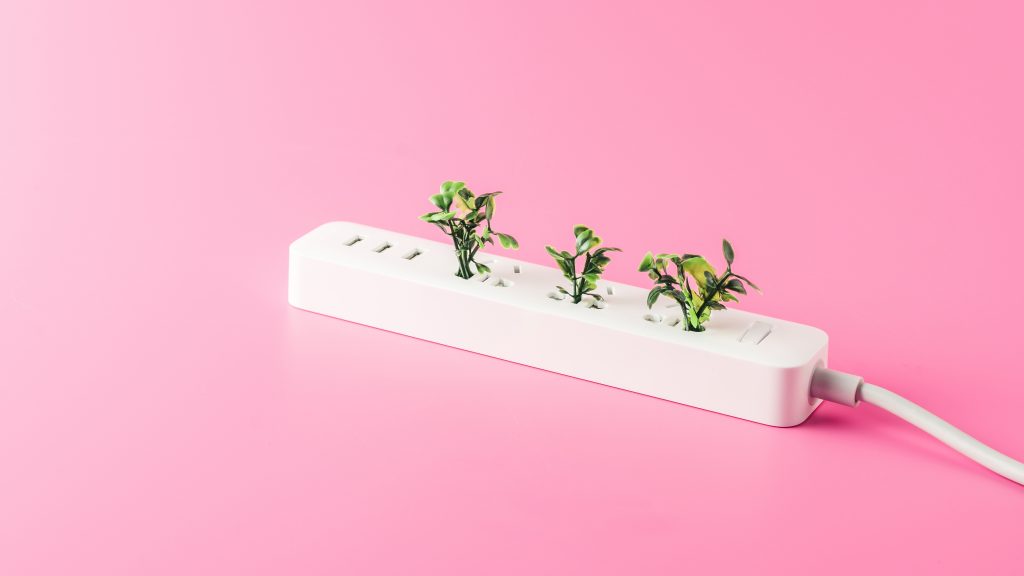Why is Energy Conservation Important?

A sort of a race is underway in the developed world to “go green” and preserve Mother Earth. From recycling your garbage to drinking from reusable cups and even using environmentally-friendly plant-based detergents, it seems that there are now ways to do everything with less energy.
If you are yet to hop on the green wagon and have so far not been convinced, we might have some new information that will turn you into an energy conservation enthusiast. We will look at the most obvious opportunity to save energy – your home.
Bear with us and you will find out how modifying your behavior slightly will result not only in reducing greenhouse gas emissions but also in your expenses.
10 Benefits of Conserving Energy
Reduce Utility Bills and Save Money
This one is probably obvious but has to be said anyway. Your energy bills are tied to your monthly energy use, so the more energy-efficient you are, the lower your bills. The US Department of Energy estimates that homes and businesses could lower their annual invoice by as much as $500 by conserving energy.
Increase Property Value
Homes fitted with equipment to conserve energy sell for a higher price on the real estate market. According to a National Association of Home Builder survey, buyers are willing to pay an additional $8,728 for homes with reduced energy costs, such as due to better insulation, an energy-efficient HVAC system, or a cool roof.
Solar panels installed on your roof increase your home’s property value by up to 4.1% compared to homes with no panels. That’s a net benefit of an additional $9,274 for the median-valued home in the U.S.
Earn a Great Return on Your Investment
When purchasing energy efficiency products, you are essentially investing in savings that accumulate over the lifespan of the product. For example, when purchasing appliances with the ENERGY STAR label, you not only save 15-30% electricity every time you use them but are also guaranteed to decrease wear and tear due to high-quality standards, which means that you won’t have to replace them as often.
Protect the Environment
The residential energy use of homes accounts for roughly 20% of greenhouse gas emissions in the United States, mostly due to heating, cooling, and powering electric appliances. That adds up to roughly 441 million tons of carbon dioxide annually, which is a mind-boggling amount of carbon released into the atmosphere.
Imagine that you’d be able to reduce it, even by 30% by conserving more energy and then multiply the effect by every US household. The atmosphere would look a lot cleaner, don’t you think?
Enhance the Quality of Life
Implementing energy efficiency measures, such as tightening the buildings through air sealing and other weatherization techniques in your home also improves comfort and indoor air quality. The air is full of indoor pollutants like radon, mold, and other particles, potentially leading to a variety of health risks. This is another reason why conserving energy is important – well ventilated dry rooms will reduce the risk of diseases.
Insulate Yourself from Rising Electricity Prices
It’s no secret that electricity prices have been steadily rising in the US, due to the relatively unopposed reign of state utility companies. Especially when entering winter, the majority of local utilities adjust the prices upwards by approximately 10-15%. By reducing energy usage, you can at least partly offset the raising prices and avoid high electricity bills.
Switch to Renewable Energy
The transition towards renewables is accelerating – with prices falling and the technology and batteries getting better. Solar energy is clean, abundant and most of all, free. Energy-efficient techniques and green energy often go hand in hand and lay the groundwork for switching to renewables.
Conserve Fossil Fuels
The U.S. uses predominately non-renewable energy sources, such as coal, petroleum, natural gas, propane, and uranium to power homes. The key characteristic of these sources is their limited supply so eventually, we are bound to run out. Energy efficiency helps us slow down the diminishing supply of fossil fuels until we are ready to completely transit to renewables.
Reduce Pollution
Most of the electricity in the U.S. is still generated from fossil fuels – and even though we don’t know it, we are all paying the price. The amount of CO2 ppm (particles per million) in the air has been steadily rising over the past 50 years, despite the continuous efforts of governments to curb them.
The air pollution associated with CO2 emissions is expected to cause the U.S 1,000 to 4,300 premature deaths each year by 2050. The importance of energy conservation cannot be overstated.
Qualifying for Incentives That Save You Even More
Many U.S. states encourage residents to reduce their energy consumption at home and help the state governments reach their environmental goals. To incentivize the adoption of measures that save energy, the federal and state governments offer various tax credits and rebates for residents to reduce the cost of these measures and benefit financially.
What is the Difference Between Energy Conservation and Energy Efficiency?
These two terms are often used interchangeably, which might get pretty confusing. However, pretty similar as they might be, there is a slight difference.
Conserving energy means making changes that lead to using less energy in your life. A prime example of saving energy this way is unplugging your electronics from the power strip when you are done charging them. However, it could also be something like turning off the light when you leave the room or taking showers instead of baths to save water and the electricity that is required to heat it.
The benefits of energy efficiency lie in using less power and energy sources to complete the same task, often thanks to technology. A great example would be to replace your incandescent light bulbs with LEDs, which use at least 75% less energy, and last 25 times longer, than incandescent bulbs.
Energy Conservation Techniques

Now that we established why energy conservation is important and what are the financial, environmental and health benefits of energy efficiency, we can answer the most pressing question – How can you save electricity in your home?
The good news is that there are actually as many as 25 different ways to save power in every room of your house. Let’s get to work with a few of them.
Unplug Appliances When Not in Use
Get in a habit of unplugging appliances you are not using, or before you go to bed – be it lamps, laptops, or a stereo. Even items that are turned off with a button still consume electricity and when added up, cost you a few extra dollars on your utility bill. Consider getting a smart power strip, which shuts off electronics that are no longer in use, to avoid high standby power costs.
Use Natural Lighting
Take advantage of sunny days by opening up the curtains and benefiting from natural, rather than artificial light. Sunlight will not only help you by saving the energy, but will also get you into a better mood!
Use Less Hot Water
No one likes cold water when you shower. But if your water heater thermostat is set at 140ºF by default, you may not only be burning through $61 annually in standby heat losses but potentially also facing a safety hazard—scalding. Reducing your water heater temperature to 120ºF will not only save you money but will slow mineral buildup and corrosion in your water heater and pipes.
Use a Smart Thermostat
A programmable thermostat conserves energy by automatically turn off or reduce the heating and cooling of your living space when you are away or asleep and can save you up to $180 in cost per year. Some newer versions can learn your daily routines and program themselves, like the Nest thermostat from Google. A pro tip –some electric suppliers offer a free programmable thermostat device when you sign up for one of their electric plans, so keep an eye out when you shop for energy rates.
Practice Energy Efficiency
You now understand why energy efficiency is important, so practice it whenever you can. Don’t run a half-empty dishwasher, turn off the lights when you leave the room, and don’t blast the AC unit for the whole day if you don’t have to.
Consider the environmental impact on emissions, pollution, resources, and air quality that each of your actions has. Become a promoter and explain how increased energy efficiency is beneficial to your family and friends. You will soon witness money savings with a side effect of feeling good about yourself.
Updated on



